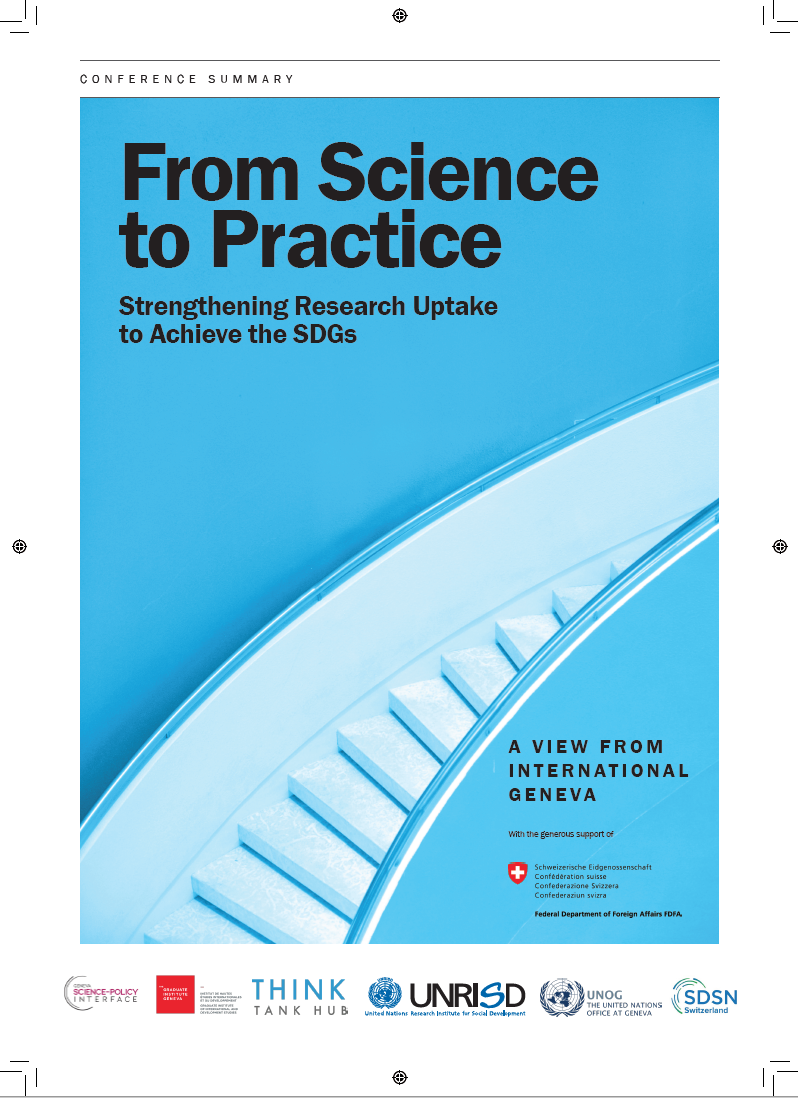In the face of mounting global challenges and a growing public distrust of science fuelled by “post-truth” politics, the need for evidence-informed policies that are underpinned by rigorous scientific research has never been greater. But despite a growing body of knowledge available to help solve many social problems, a number of cultural, political, institutional and financial barriers can prevent research from finding its way into policy-making circles.
How can we address the overwhelming gap between what we know on the one hand, and what is actually being done?
Peter Messerli
Director, Centre for Development and Environment (University of Bern) and Co-Chair of the independent group of scientists for the UN Global Sustainable Development Report
It is in this context that the Graduate Institute and its Global Governance Centre joined a consortium of research institutes, think tanks, governmental bodies and international organizations to co-organize the conference “From Science to Practice: Strengthening Research Uptake to Achieve the SDGs” on 11-12 December 2019. The conference brought together researchers, decision-makers, and policy practitioners in a collaborative format to discuss the barriers to research uptake and identify possible pathways to a transformed science-policy interface.
Those of us who continue to believe that today’s problems cannot be solved without cooperation need to continue to invest in multilateralism … continue to put our energy, our political capital and, most of all, our knowledge into this cooperation.
Ambassador Valentin Zellweger
Head of the Permanent Mission of Switzerland to the United Nations and other International Organisations in Geneva
Participants outlined several concrete recommendations on how to transform and improve the interface between science and policy, among them:
-
Promoting an integrated approach, whereby scientists and policymakers engage more regularly throughout the policy cycle;
-
Reducing “translation” problems by balancing the need to do justice to the complexity of scientific research, and the need to communicate its implications in accessible language;
-
Recalibrating the incentives for cooperation between policy-makers and researches, for example by creating spaces to promote research within the UN system;
-
Broadening the range of voices at the science-policy interface by improving the gender, geographic and youth balance.
Conference participants also discussed these relationships across three specific SDGs: Good Health and Well-Being (Goal 3); Reduced Inequalities (Goal 10); Sustainable Cities and Communities (Goal 11). An interactive workshop on day two brought together students and policy experts to explore innovative solutions to gaps and needs identified earlier during the conference.
For a complete overview of the conference proceedings, download the full conference report. (PDF, 2MB)
To discover more about the nature of the relationship between science and politics, consult our Global Governance Debate on “Science, Politics, and Policy”



